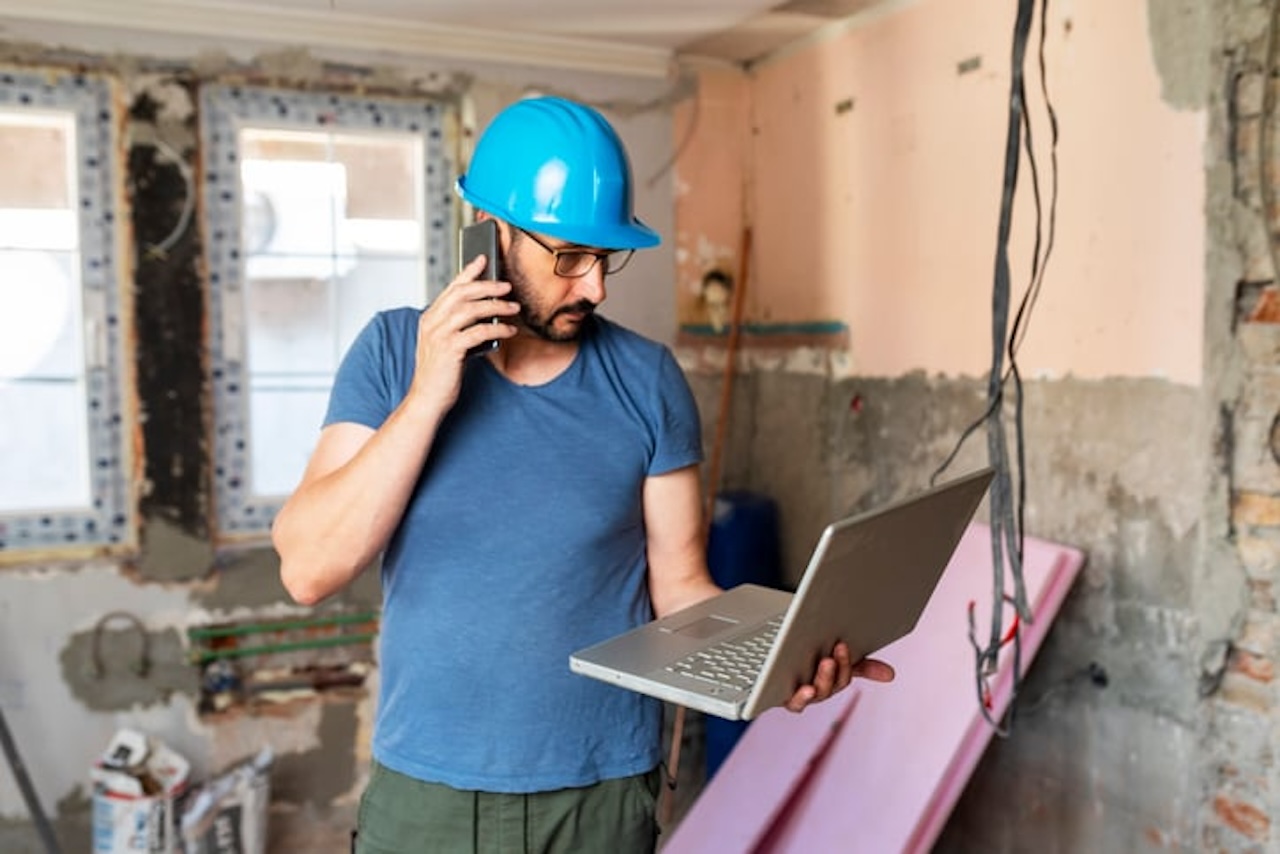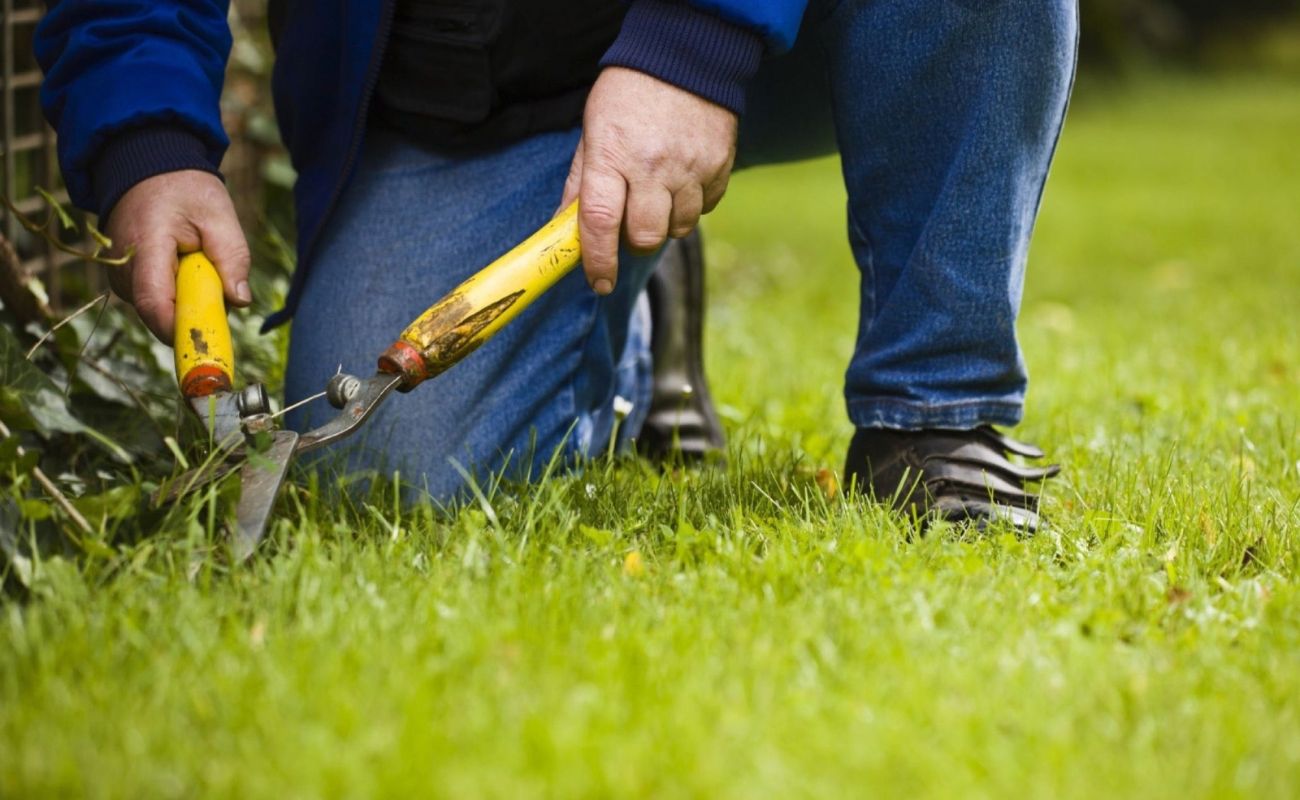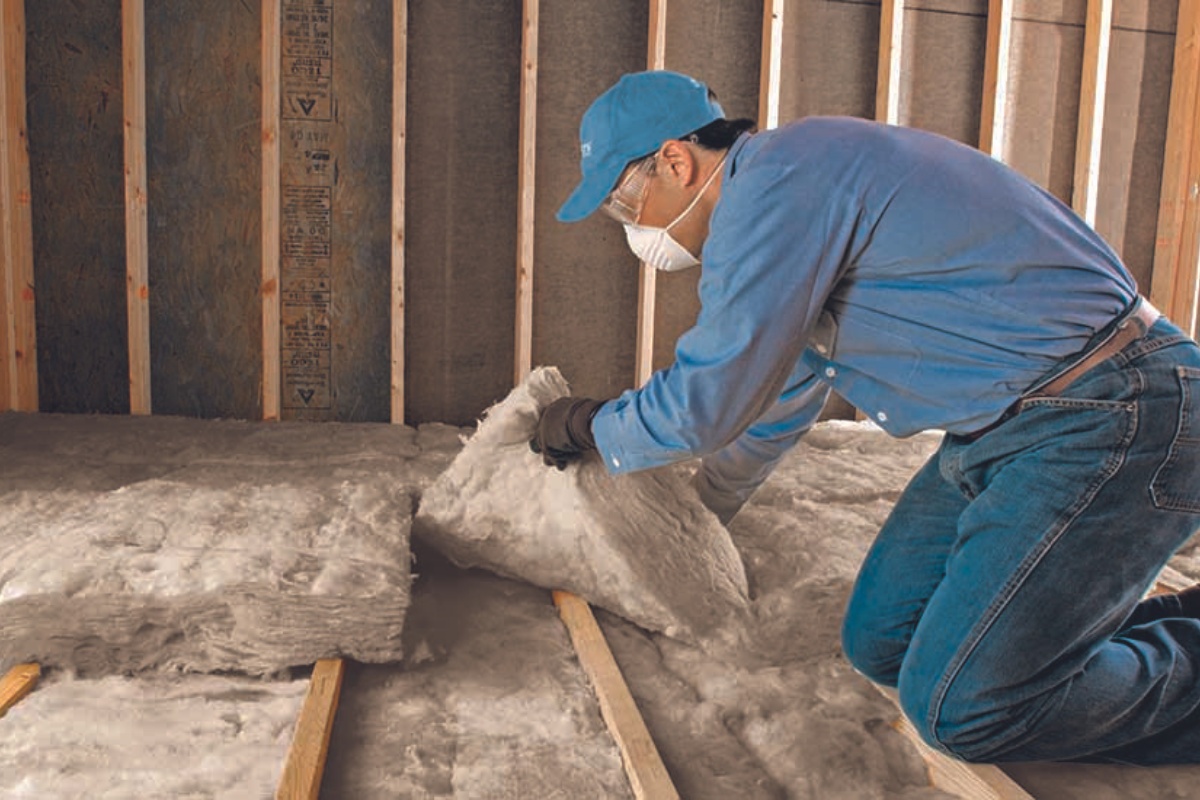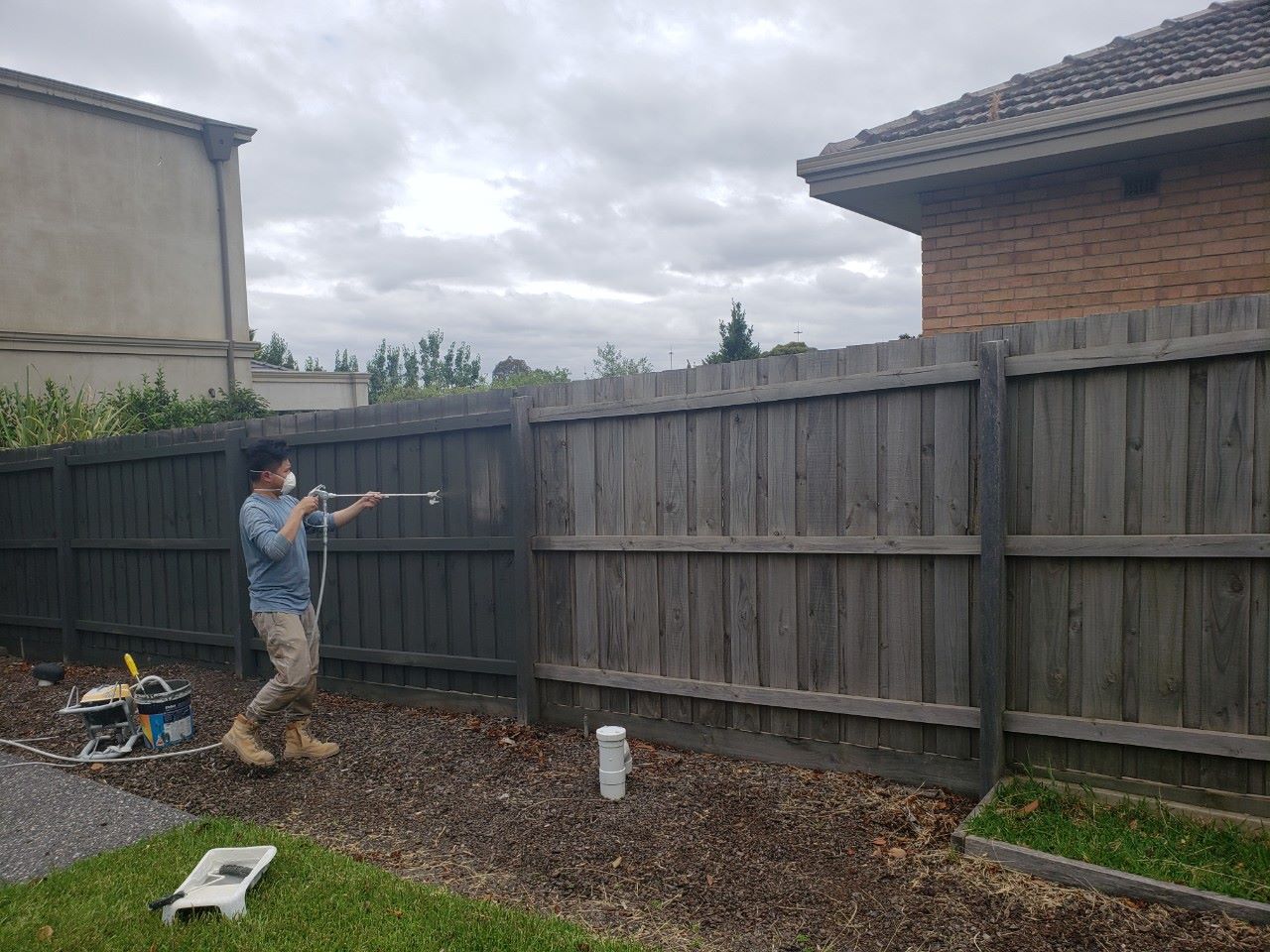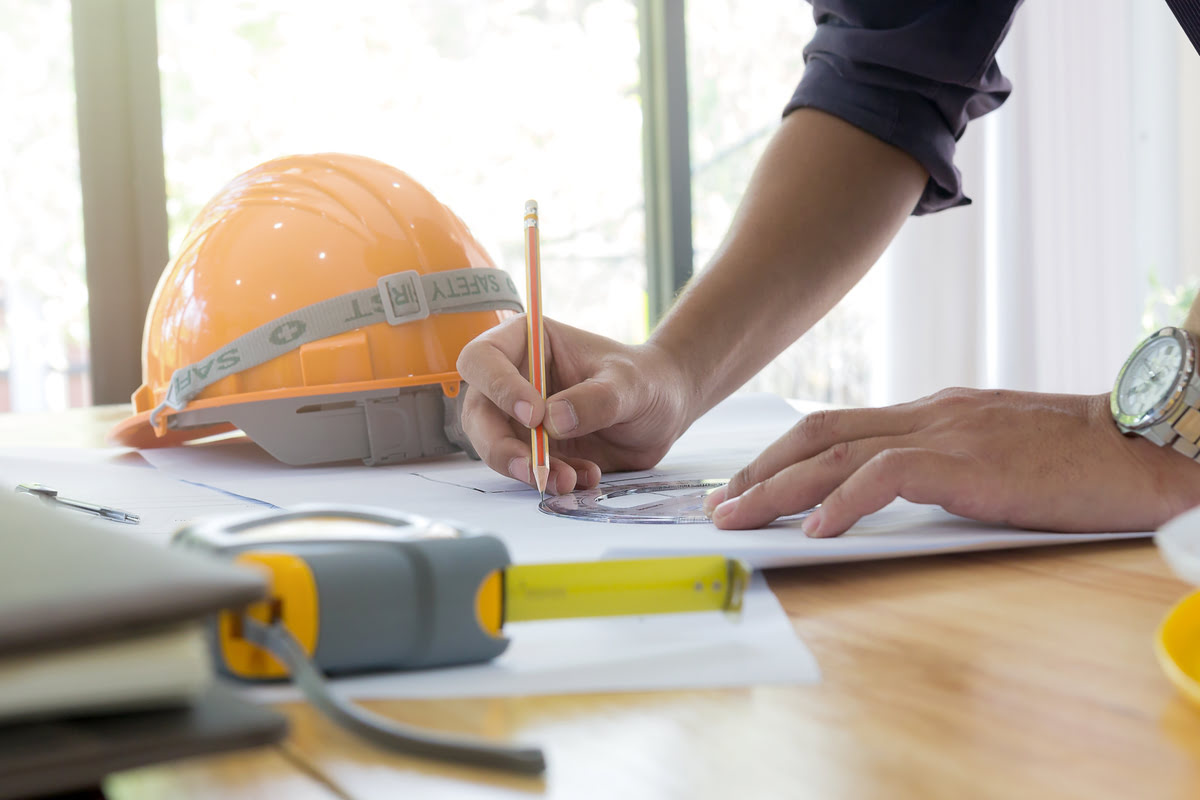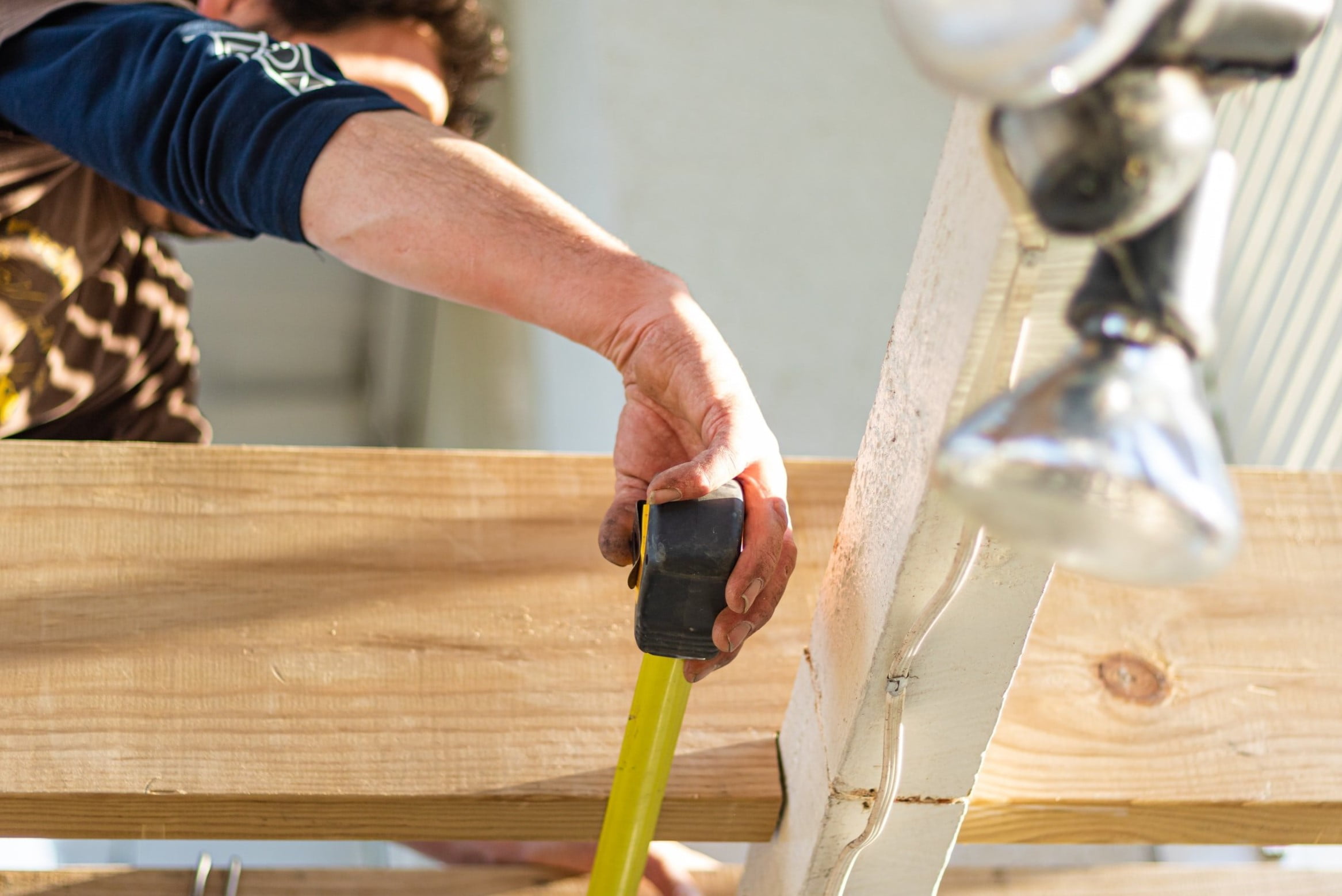Home>Home Maintenance>What Expenses Are Considered For A Home Repair Business


Home Maintenance
What Expenses Are Considered For A Home Repair Business
Modified: October 27, 2024
Learn what expenses are considered for a home repair business and how they can impact your bottom line. Discover key insights and strategies to manage your home-maintenance costs efficiently.
(Many of the links in this article redirect to a specific reviewed product. Your purchase of these products through affiliate links helps to generate commission for Storables.com, at no extra cost. Learn more)
Introduction
Welcome to the world of home repair businesses! If you have a knack for fixing things around the house, starting your own home repair business can offer a fulfilling and potentially lucrative career. Whether you specialize in plumbing, electrical work, carpentry, or general maintenance, running a home repair business requires careful planning and consideration of various expenses. In this article, we will explore the different expenses that you need to take into account to ensure the success of your venture.
Before diving into the breakdown of expenses, it is crucial to have a clear understanding of the legal aspects involved in running a home repair business. Obtaining the necessary licenses and permits is essential to operate legally and instill trust in your customers. These costs may vary depending on your location and the specific requirements set by local authorities. It is advisable to consult with a professional or local government agency to determine the exact licensing and permit fees for your home repair business.
Key Takeaways:
- Starting a home repair business involves planning for expenses like licensing, insurance, materials, and labor. Careful budgeting ensures legal compliance and high-quality service delivery.
- Managing a home repair business requires considering costs for marketing, transportation, office, and miscellaneous items. Adapting to industry changes and prioritizing customer satisfaction are key to success.
Read more: What Is Considered Landscaping?
Licensing and Permits
When starting a home repair business, one of the initial expenses you will encounter is the cost of obtaining the necessary licenses and permits. These documents not only allow you to operate legally but also give your customers confidence in your expertise and professionalism. The specific licenses and permits you need may vary depending on your location and the nature of your home repair services. Some common licenses and permits include:
- Contractor’s License: This license is required for those offering specialized services such as plumbing, electrical work, or HVAC.
- General Business License: This license is necessary for operating any type of business, including a home repair business.
- Trade Licenses: Certain trades, such as roofing or flooring, may require specific trade licenses.
- Home Improvement License: This license is needed for businesses that undertake larger-scale home improvement projects.
- Municipal Permits: Depending on your location, you may need permits for specific projects, such as building permits for renovations or permits for outdoor signage.
It is essential to research and understand the licensing and permit requirements in your area. This may involve contacting your local government or licensing boards to determine the specific costs associated with obtaining these documents. These costs can range from a few hundred to a few thousand dollars, depending on the type of license or permit and the regulations in your region.
Additionally, some licenses and permits may require periodic renewals, which will incur additional costs. It is crucial to factor in these ongoing expenses when budgeting for your home repair business.
Remember that running a home repair business without the appropriate licenses and permits can lead to legal repercussions and damage your reputation. It is always better to invest in the necessary documentation to operate within the bounds of the law and provide peace of mind to your clients.
Insurance Costs
Insurance is a crucial aspect of any home repair business. It provides protection against unexpected events, accidents, and liabilities that may arise during your work. As a home repair professional, you need to consider the following insurance policies:
- General Liability Insurance: This insurance covers bodily injury, property damage, and advertising injuries caused to clients or third parties. It protects you from liabilities arising from accidents or damages that occur during your work.
- Worker’s Compensation Insurance: If you plan to hire employees or subcontractors, worker’s compensation insurance is vital. It covers medical expenses and lost wages in case of work-related injuries or illness.
- Professional Liability Insurance: Also known as errors and omissions insurance, this coverage protects you against claims of negligence, errors, or omissions in your professional services. It is particularly important if you provide specialized services such as electrical or plumbing work.
- Commercial Property Insurance: If you have a physical location for your business, this insurance covers damages to your property and its contents, including tools, equipment, and supplies.
- Vehicle Insurance: If you use vehicles for your business, such as vans or trucks to transport tools and supplies, commercial auto insurance is necessary to cover accidents or damages related to your business vehicles.
The cost of insurance for a home repair business varies based on several factors, including the type of services you offer, your location, the number of employees, your claims history, and the coverage limits you choose. It is advisable to obtain quotes from multiple insurance providers and carefully review their coverage options and premiums. This will allow you to find the best policy that suits your needs and budget.
Keep in mind that insurance costs are recurring expenses. You will typically pay premiums annually or at regular intervals. It is crucial to include these expenses in your budget to ensure adequate protection for your home repair business.
While insurance may seem like an additional cost, it provides significant peace of mind. Accidents and mishaps can happen in any line of work, particularly in the construction and repair industry. Insurance protects your business from potential financial losses and legal issues, demonstrating your commitment to professionalism and client satisfaction.
Materials and Supplies
As a home repair business owner, you will regularly require various materials and supplies to complete your projects efficiently. These include tools, equipment, and the actual materials needed for repairs or installations. Properly budgeting for these expenses is vital to ensure that you have everything you need to deliver high-quality services to your clients. Here are some key considerations for materials and supplies:
- Tools and Equipment: Depending on the nature of your home repair business, you will need a range of tools and equipment to perform your tasks effectively. This may include power tools, hand tools, safety equipment, and specialty tools specific to your trade. The initial cost of purchasing these tools can vary significantly, but it is advisable to invest in quality and durable equipment that will last longer.
- Building Materials: Building materials such as lumber, drywall, plumbing fixtures, electrical components, or paint are essential for completing repairs or renovations. The costs of these materials will depend on the size and complexity of the projects you undertake. It is crucial to establish relationships with suppliers to negotiate bulk discounts or pricing arrangements for ongoing material needs.
- Consumables: In addition to tools and building materials, you will also need various consumables in your day-to-day operations. These can include screws, nails, adhesives, caulk, paintbrushes, cleaning supplies, and other items necessary for completing tasks.
It is essential to carefully track and manage your inventory of materials and supplies. Maintaining a sufficient stock will help minimize delays and ensure smooth operations. Additionally, factor in the cost of replenishing your inventory when considering budgeting for materials and supplies.
When determining the budget for materials and supplies, it may be beneficial to analyze historical data or consult with experienced professionals in your industry. This can provide insights into the average expenses associated with different types of projects. By considering these factors, you can estimate how much you need to allocate for materials and supplies on a per-project or ongoing basis.
Remember, the quality of your materials and supplies directly impacts the quality of your work. Be sure to select reputable suppliers and quality products to deliver exceptional results that satisfy your clients and enhance your reputation in the home repair industry.
Equipment and Tools
Having the right equipment and tools is essential for a successful home repair business. These tools not only enable you to complete your tasks efficiently but also contribute to the quality of your work. Investing in high-quality equipment and tools is crucial for a smooth operation and customer satisfaction. Here are some key points to consider when it comes to equipment and tools:
- Essential Tools: Depending on the nature of your home repair business, you will need specific tools that are essential to your trade. For example, if you specialize in electrical work, you will need a variety of electrical tools such as wire cutters, voltage testers, and pliers. If you focus on carpentry, you will require a range of saws, chisels, and measuring instruments. Identify the tools that are necessary for your specific line of work.
- Power Tools: Power tools can significantly enhance your efficiency and productivity. Investing in quality power tools like drills, saws, and sanders helps you complete tasks faster and tackle more challenging projects. Prioritize power tools that align with the type of work you do and ensure they are from reputable brands known for durability and performance.
- Specialty Equipment: Depending on the specific services you offer, you may require specialty equipment. For example, if you specialize in plumbing, you may need pipe cutters, plumbing snakes, or specialized pipe wrenches. Assess the unique requirements of your trade and invest in any specialized equipment that will enhance your capabilities.
- Maintenance and Repair: Regular maintenance and repair of your equipment and tools are essential to keep them in optimal condition. Budget for periodic maintenance, blade sharpening, and replacement parts to ensure the longevity of your tools and avoid unexpected breakdowns during critical projects.
- Equipment Financing: If the cost of purchasing all the necessary equipment upfront is challenging, explore leasing or financing options. Many equipment suppliers and financial institutions offer flexible financing arrangements that allow you to acquire the equipment you need without straining your cash flow.
When budgeting for equipment and tools, consider factors such as the initial purchase cost, ongoing maintenance expenses, and the expected lifespan of the equipment. It is also helpful to do research, compare prices from different suppliers, and seek recommendations from industry professionals to ensure you make informed decisions.
Remember, investing in high-quality equipment and tools is a long-term investment in the success and efficiency of your home repair business. By having the right tools at your disposal, you can provide top-notch services, complete projects with precision, and enhance your reputation among clients and within the industry.
Labor Expenses
Labor expenses play a significant role in the overall costs of running a home repair business. Unless you plan to handle all the work yourself, you may need to hire skilled labor or subcontractors to assist you with projects. Here are some crucial factors to consider when it comes to labor expenses:
- Employee Wages: If you plan to have employees working under your home repair business, you need to budget for their wages. Consider factors such as the experience and skills required for the job, local wage rates, and employment laws in your area. It’s important to offer fair compensation to attract and retain skilled workers.
- Subcontractor Fees: In situations where you cannot handle all the work on your own or need specialized expertise, you may need to hire subcontractors. Subcontractor fees will depend on the services rendered, the complexity of the project, and the subcontractor’s experience. It is important to establish clear agreements and negotiate rates with subcontractors upfront.
- Benefits and Insurance: In addition to wages or fees, consider the cost of providing benefits to your employees, such as health insurance, retirement plans, or paid time off. It is also important to provide worker’s compensation insurance for your employees to cover any potential work-related injuries or illnesses.
- Overtime and Additional Hours: There may be times when your employees or subcontractors need to work beyond regular hours. Be prepared to budget for overtime pay or additional hours whenever necessary to meet project deadlines or accommodate client requests.
- Training and Development: Investing in the training and development of your employees can enhance their skills and efficiency. Budget for ongoing professional development and industry-specific training to keep your team up-to-date with the latest techniques and technologies in home repair.
When estimating labor expenses, it is important to factor in not only the direct costs but also any indirect costs associated with hiring and managing employees. These can include recruitment expenses, payroll processing fees, and any administrative tasks related to HR and compliance.
Additionally, efficient management of labor resources is crucial. Proper project planning, scheduling, and effective communication can minimize downtime and optimize the utilization of labor, ultimately reducing overall labor costs.
Remember, investing in skilled labor and maintaining a motivated and well-trained team is crucial for the success of your home repair business. By providing fair compensation, benefits, and growth opportunities, you can attract and retain top talent, ensuring that your projects are completed to the highest standards of quality and customer satisfaction.
Marketing and Advertising
Effective marketing and advertising strategies are essential for creating visibility and attracting clients to your home repair business. By investing in targeted marketing efforts, you can reach your target audience and differentiate yourself from competitors. Here are some key points to consider when it comes to marketing and advertising:
- Website and Online Presence: In today’s digital age, having a professional website is crucial for establishing credibility and providing information to potential clients. Invest in the creation of a well-designed website that showcases your services, projects, and contact information. Optimize your website for search engines (SEO) to ensure it appears in relevant searches.
- Online Listings and Directories: Register your business on local directories and online platforms that specialize in connecting homeowners with home repair professionals. This can improve your visibility and make it easier for clients to find and contact you.
- Social Media Marketing: Utilize social media platforms to promote your business, share project updates, and engage with potential clients. Develop a content strategy that highlights your expertise, provides helpful tips, and showcases your previous work.
- Word-of-Mouth Referrals: Encourage satisfied clients to spread the word about your services. Implement referral programs or loyalty rewards to incentivize clients to recommend your work to their friends, family, or colleagues.
- Paid Advertising: Consider investing in paid advertising to increase your reach and exposure. Options include online advertising platforms like Google Ads or social media platforms that allow targeted advertising based on demographics and interests.
- Print Collateral: Create professional business cards, brochures, and flyers that you can distribute at local events, community centers, or relevant businesses. These tangible materials can help potential clients remember your services and contact information.
- Networking and Partnerships: Attend industry events, join local business groups, and establish relationships with other professionals in related fields such as real estate agents or interior designers. Collaborating and networking can lead to referrals and partnerships that benefit both parties.
When budgeting for marketing and advertising, consider both one-time costs and recurring expenses. This includes website development and maintenance, online advertising budgets, printing costs for promotional materials, and any fees associated with participating in industry events or networking groups.
Regularly review and evaluate the effectiveness of your marketing efforts. Collect feedback from clients and monitor the return on investment for different marketing channels. This will help you optimize your strategies and allocate your marketing budget wisely to drive the best results for your home repair business.
Remember, effective marketing and advertising can significantly contribute to the growth and success of your home repair business. By promoting your services, showcasing your expertise, and building a strong brand presence, you can attract a steady stream of clients and establish yourself as a trusted professional in the industry.
Keep detailed records of all expenses related to your home repair business, including materials, tools, equipment, labor, permits, insurance, and vehicle costs. This will help you accurately track your spending and maximize your tax deductions.
Transportation and Vehicle Expenses
Transportation is a crucial aspect of running a home repair business, as it enables you to travel to client locations and transport equipment and materials. Properly managing transportation and vehicle expenses is essential to ensure smooth operations and maximize efficiency. Here are some key considerations when it comes to transportation and vehicle expenses:
- Vehicle Purchases or Leases: Determine whether you need to purchase or lease a vehicle for your home repair business. Consider factors such as the type of work you do, the size and capacity required, and your budget. If you already own a vehicle, assess whether it is suitable for your business needs or if you need to upgrade to a more suitable option.
- Fuel Costs: Budget for fuel expenses as they can be a significant part of your transportation costs. Estimate the average number of miles you will cover for each project and calculate fuel costs accordingly. Consider fuel-efficient vehicles to minimize fuel expenses, especially if you have multiple vehicles in your fleet.
- Vehicle Maintenance and Repairs: Regular maintenance and occasional repairs are necessary to keep your vehicle(s) in optimal condition. Account for expenses such as oil changes, tire rotations, brake repairs, and other routine maintenance tasks. Be prepared for unexpected breakdowns and factor in repair costs to minimize downtime.
- Insurance and Registration: Acquire commercial auto insurance to protect your vehicle(s) and your business from potential accidents or damages. Additionally, budget for registration fees and any other required documentation for your vehicles.
- Parking and Tolls: Consider parking fees and toll expenses, especially if you frequently travel to client locations in urban areas or use toll roads. These costs can add up, so it’s important to allocate an appropriate budget for them.
- Vehicle Branding and Signage: Consider adding branding and signage to your vehicles to increase visibility and promote your home repair business. Factor in the cost of design, installation, and future updates or replacements.
Properly tracking and documenting transportation and vehicle expenses is important for accurate financial records and tax purposes. Keep detailed records of mileage, fuel purchases, and all related expenses to ensure transparency and compliance with regulations.
Efficient route planning and scheduling can help minimize transportation costs and increase productivity. Consider using route optimization software or GPS tools to plan the most efficient routes, saving time and reducing fuel expenses.
By carefully managing transportation and vehicle expenses, you can ensure that your home repair business operates smoothly and cost-effectively. Properly maintaining your vehicles, budgeting for expenses, and optimizing travel routes will contribute to increased efficiency and ultimately enhance your overall business performance.
Office and Administrative Expenses
While much of a home repair business takes place on-site with clients, having the necessary office and administrative support is crucial for smooth operations. Properly managing office and administrative expenses can help you maintain an organized and efficient business. Here are some key points to consider:
- Office Space: Determine if you need a dedicated office space for administrative tasks or if a home office setup is sufficient. Consider renting a small office space or utilizing co-working spaces to minimize costs. If you work from home, allocate a designated area for paperwork, computer work, and client communication.
- Office Supplies: Budget for essential office supplies such as paper, ink cartridges, pens, notepads, folders, and any other items needed for day-to-day operations. Consider purchasing in bulk or seeking discounts from suppliers to reduce costs.
- Communication Expenses: Include expenses for phone service, internet connection, and business email accounts. These are vital for maintaining communication with clients, suppliers, and employees. Evaluate different service providers to find the best rates for your needs.
- Software and Technology: Consider the cost of software and technology needed to manage your administrative tasks. This may include accounting software, project management tools, customer relationship management (CRM) software, and website hosting and maintenance.
- Professional Services: Budget for professional services like accounting, bookkeeping, or legal advice. These professionals can ensure that your financial records are accurate, help you navigate tax obligations, and provide legal guidance for your business.
- Business Insurance: In addition to the insurance policies mentioned earlier, consider any additional insurance coverage specific to office and administrative risks. This may include professional liability insurance, cyber insurance, or data protection coverage to protect sensitive client information.
- Marketing Materials: Allocate a budget for the design and printing of marketing materials such as business cards, brochures, and promotional items. These materials help promote your business during networking events or client meetings.
Effective organization and time management can also contribute to reducing administrative expenses. Implement systems for efficient document management, client communication, and appointment scheduling to optimize your workflow.
Moreover, explore digital solutions to streamline administrative tasks and reduce paper waste. Utilize cloud storage to store and access important documents securely, and utilize electronic signatures to minimize the need for physical paperwork.
By appropriately budgeting for office and administrative expenses and implementing efficient systems, you can ensure that your home repair business runs smoothly and professionally. Providing an organized and well-supported administrative framework enhances both your internal operations and the overall customer experience.
Read more: What Is Considered A Wildflower
Utilities and Facilities
When running a home repair business, you may require utilities and facilities to support your operations. These expenses are vital for maintaining a functional workspace and ensuring the smooth execution of your projects. Here are key considerations for utilities and facilities:
- Electricity and Gas: Estimate the costs of electricity and gas required to power your office space or workshop. Consider any equipment, lighting, and heating or cooling systems that contribute to your energy consumption. Implement energy-saving practices to reduce costs, such as using energy-efficient appliances or LED lighting.
- Water and Sewer: If your business involves plumbing or water-related services, factor in the costs of water usage and sewer fees. Track and monitor water consumption to identify any potential water-saving opportunities or leaks that could lead to higher bills.
- Rent or Mortgage: If you operate from a physical location, such as an office or workshop, budget for rent or mortgage payments. The cost will depend on factors such as location, size, and amenities. Consider negotiating lease terms or exploring shared spaces to reduce expenses.
- Maintenance and Repairs: Maintain a separate budget for facility maintenance and repairs. Regularly inspect your workspace for any necessary repairs or upgrades, such as plumbing or electrical fixes, roof maintenance, or general upkeep. Addressing issues promptly can prevent larger, costlier problems down the line.
- Trash and Waste Disposal: Factor in the costs of trash removal and waste disposal services. Depending on your location, there may be fees associated with commercial waste management. Implement recycling and waste reduction practices to minimize costs and environmental impact.
- Internet and Phone Services: Include fees for internet and phone services necessary for communication and accessing online resources. Research different service providers to find the most suitable plans for your business needs.
It’s important to regularly review your utility bills and assess consumption patterns. Look for opportunities to optimize energy usage, negotiate rates with providers, or explore alternative energy sources to reduce costs and minimize your environmental footprint.
If necessary, consult with professionals to conduct energy audits or assess the efficiency of your workspace. They can provide recommendations on enhancing energy efficiency and reducing utility expenses.
Remember that proper maintenance of your facilities and efficient utilization of utilities can contribute to cost savings in the long run. By creating a comfortable and well-maintained workspace, you can foster a productive environment for your team and leave a positive impression on clients.
Legal and Professional Fees
Legal and professional fees are an important consideration for any home repair business. These expenses ensure that you navigate the legal requirements and protect your business interests. Here are some key points to consider when it comes to legal and professional fees:
- Legal Consultation: Seeking legal advice from an attorney experienced in business and contract law is crucial. They can help you with legal compliance, contracts, liability protection, and other legal matters specific to your home repair business. Budget for initial consultations, ongoing legal advice, and potential representation in legal proceedings.
- Accounting and Bookkeeping: Hiring an accountant or a bookkeeper is recommended to ensure accurate financial records and compliance with tax obligations. They can help you with bookkeeping, tax preparation, financial reporting, and other financial aspects of your business. Include their fees in your budget, either as a recurring monthly expense or on an as-needed basis.
- Professional Memberships and Associations: Consider joining professional associations or trade organizations related to the home repair industry. Membership fees may grant you access to valuable resources, networking opportunities, and industry updates. Evaluate the benefits of each association and include the membership fees in your budget.
- Intellectual Property Protection: If you have unique designs, logos, or inventions associated with your business, you may need to protect them through trademarks, copyrights, or patents. Set aside funds for legal fees associated with filing and maintaining intellectual property rights.
- Contractor License Renewals: If your home repair business requires a contractor’s license, budget for the renewal fees. Contractor licenses often need to be renewed annually or periodically, depending on local regulations. Failure to renew on time can result in penalties or suspension of your business activities.
- Dispute Resolution: In the event of client disputes or disagreements with suppliers or subcontractors, you may need alternate dispute resolution services, such as mediation or arbitration. Budget for potential fees associated with resolving disputes professionally and efficiently.
When selecting professionals, such as lawyers or accountants, consider their experience in the home repair industry. Seek recommendations or referrals from trusted sources to ensure you find professionals who understand the unique aspects of your business.
Properly allocating funds for legal and professional fees is essential for maintaining a strong legal and financial foundation for your home repair business. By investing in the expertise of professionals, you can minimize legal risks, ensure compliance, and focus on delivering exceptional services to your clients.
Miscellaneous Expenses
In addition to the specific categories mentioned earlier, it’s important to consider miscellaneous expenses when running a home repair business. These are often unforeseen or variable costs that don’t fit into a particular category but are essential for the smooth functioning of your business. Here are some common miscellaneous expenses to consider:
- Permits and Inspections: Depending on the nature of your projects, you may need to obtain permits for certain jobs or undergo inspections to ensure compliance with building codes. Budget for the fees associated with permits and any costs related to inspections.
- Training and Certifications: Continuous learning and professional development are essential in the home repair industry. Account for the expenses associated with attending workshops, training programs, or obtaining certifications to enhance your skills and stay updated with industry trends.
- Office and Workshop Decor: Creating a professional and inviting space for your clients and employees is essential. Allocate funds for office or workshop decor, including furniture, signage, lighting fixtures, and other aesthetic enhancements.
- Safety Equipment and Gear: Prioritize the safety of yourself and your team by budgeting for high-quality safety equipment such as helmets, gloves, goggles, ear protection, and safety harnesses. This equipment may need periodic replacement, so plan for ongoing expenses in this area.
- Miscellaneous Tools and Equipment: There may be small, specialized tools or equipment specific to certain projects that don’t fall into your regular toolbox. Budget for these miscellaneous tools or equipment that you might need on occasion to complete certain tasks.
- Subscriptions and Memberships: Consider any subscriptions or memberships that are directly related to your business. This could include trade magazines, industry-specific software subscriptions, or online platforms that provide valuable resources or networking opportunities.
- Uniforms or Branded Clothing: If you have employees or prefer a uniform look for your team, allocate funds for the purchase and maintenance of uniforms or branded clothing. This creates a professional appearance and builds brand recognition.
It’s important to review your expenses regularly and adjust your budget as needed. Keep track of these miscellaneous expenses to ensure that you are adequately prepared for any unexpected costs that may arise throughout the year.
Additionally, consider setting aside a contingency fund to cover unforeseen expenses or emergencies. This provides a financial cushion and helps maintain stability during challenging times.
Remember, while these may be miscellaneous expenses, they can collectively contribute to the overall success and professionalism of your home repair business. By accounting for these costs, you can ensure that you have everything you need to deliver exceptional services and maintain the highest standards of quality.
Conclusion
Running a home repair business involves careful consideration of various expenses to ensure the success and profitability of your venture. From licensing and permits to insurance costs, materials and supplies, equipment and tools, labor expenses, marketing and advertising, transportation and vehicle expenses, office and administrative expenses, utilities and facilities, legal and professional fees, and miscellaneous expenses—each category requires thorough planning and budgeting to maintain a well-organized and efficient operation.
By understanding and accounting for these expenses, you can effectively manage your finances and allocate resources where they are needed most. This will not only help you deliver exceptional services to your clients but also ensure the long-term growth and sustainability of your home repair business.
Remember to regularly review and evaluate your expenses, seeking opportunities to optimize costs and improve efficiency. Keep track of industry trends, seek professional advice when necessary, and stay updated with the latest technologies and best practices. By staying informed and adapting to changes, you can position your business for continued success in the competitive home repair market.
While financial considerations are crucial, it’s also important to remember that providing exceptional customer service, maintaining strong relationships with clients, and continuously improving your skills and knowledge are equally important factors in the success of your home repair business.
With careful planning, attention to detail, and a commitment to delivering top-quality work, you can build a thriving home repair business that not only meets the needs of your clients but also brings you personal and professional fulfillment.
Good luck on your journey as a home repair business owner, and may your business flourish and prosper!
Frequently Asked Questions about What Expenses Are Considered For A Home Repair Business
Was this page helpful?
At Storables.com, we guarantee accurate and reliable information. Our content, validated by Expert Board Contributors, is crafted following stringent Editorial Policies. We're committed to providing you with well-researched, expert-backed insights for all your informational needs.


